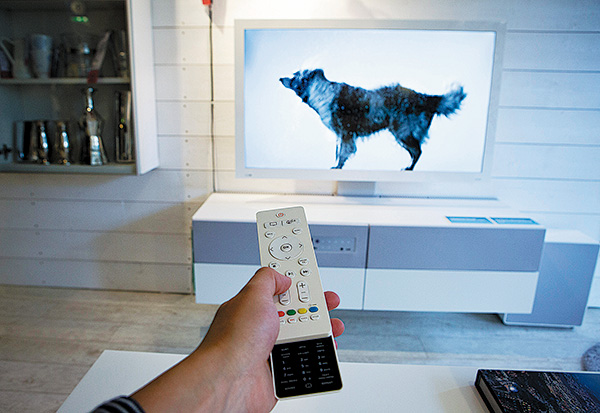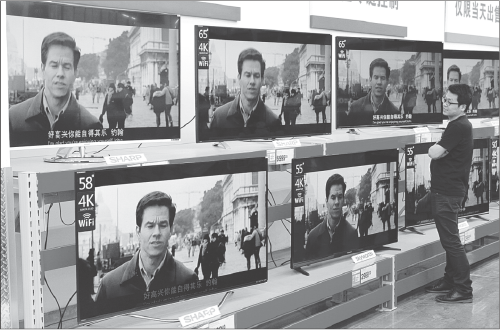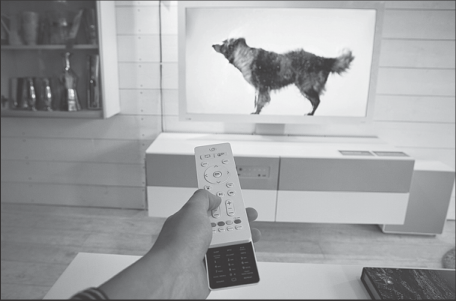Smart TV channels a sense of frustration
Switching on a set and watching a program is not as easy as it should be, Zhang Lei reports.


Services based on profit models such as membership payment and advertising have become the most annoying drawbacks of smart TV.
"For me, advertising at the beginning of a video on Tencent Video and iQiyi is bearable, because the video is free and we don't have to spend any money. But TV boot advertisement is different. I have purchased TV with real money, and it is intolerable that the TV manufacturers force users to watch their automatic advertising to make a profit. It is like when you spend money to buy a house, every time you go home and enter the door, you are forced to buy something before you can enter," says Li Xing, a smart TV user.
After the TV becomes "smart", it seems that advertisements are inevitable. In addition to automatic advertisements, the related softwares built into the TV also pop up advertisements routinely. Only after watching the advertisements can you click exit, otherwise you are prevented from watching.
The trick of skipping advertisements requires VIP membership. Some users have calculated that they need to recharge more than 400 yuan a month to avoid the advertising experience.
In addition, membership services set too many traps. For example, users can activate their membership on a mobile phone for 15 yuan a month. However, if you log in to its corresponding TV app using the same account, you cannot continue to use the membership service on the mobile phone. You need to pay an additional membership upgrade fee, and the price of this extra payment is basically 5 to 10 yuan per month.
Another user, Wang Zhen, complains about the endless money grabbing mechanism. "After the membership fee of 199 yuan for my smart TV expired, the platform reminded me to renew the subscription, so I opened a film and television membership, but I could only watch video movies for adults. My son wants to watch some children's films, but we have to open a child membership," he says.
In addition, a smart TV is not friendly to the elderly. There are generally more than two remote controls-the remote control of the TV and of a set-top box. Some video platforms require the use of a mobile phone to modulate it before you can watch it on the TV.
The problem of all kinds of advertisements on smart TV has become the norm. A small number of users with strong hands-on ability have developed various methods to block advertisements, while other users can only choose to endure or pay for solutions. But the reason behind all this is the fact that the cost of video platforms continues to expand.
The State Administration of Radio, Film and Television has issued seven internet TV integration business licenses, including to CCTV International, Hunan TV and China International Broadcasting Network (CIBN). For example, Youku is not a license holder. They cooperated with CIBN for the right to broadcast on TV sets, and renamed its TV app to "Cool Meow"; and iQiyi cooperated with China Central Radio to change to "Galaxy Kiwifruit". The cost of cooperation expands. In addition to the cooperation fee, the film and television broadcasting platform also pays the copyright owner, and this increased cost can only be passed on to the TV membership by adding more TV members.
The TV industry is seeking every possible way to upgrade the functions of TV and increase the time users stay in front of TV. According to CTR Market Research, a joint venture of China International Television Corp and Kantar Group, by the second quarter of 2021, the overall penetration rate of internet smart TV in China hit 53.3 percent. The main consumer group, those aged 25-34, has a higher tendency to recognize and purchase advertising brands on smart TV. The data suggests a market potential, yet internet TV manufacturers also need to develop diversified profit channels to avoid the current danger that would offset such growth.
Mango TV, already having a favorable balance, has developed a "long video+ social networking" model, in an attempt to increase user adhesiveness through small theaters and interactive games. Smart TV platforms may be a new direction for in-depth content interaction and service transactions.
"In the face of alternative entertainment options, it is normal for TV usage to decline, but the advanced entertainment experience that TV brings to us is something that other terminals cannot provide. Smart TV has a long way to go," Li says.






































